A few years ago, I was on an international trip with a Quaker seminary, and we visited a number of cities and faith-based organizations. At each stop, we had to introduce ourselves: describing the seminary and its Quaker affiliation. This was not an easy task. Most of the people we were meeting had never heard of Quakers, and we were communicating across a serious language barrier. One person took it upon herself to explain Quaker faith and practice. I couldn’t help but cringe each time she told our new friends, “Quakers don’t have pastors.” Every time I heard this, I felt as though the witness of many wise and caring Friends pastors I’ve known was being erased. I had served as a Quaker pastor, so it felt dismissive of my ministry as well.
Of course, my fellow traveler is partially right. And I’m partially right. This dilemma illustrates the difficulty of talking about Quaker leadership (or Quaker anything). There is so much variation that we get twisted and tangled up trying to describe even general principles and practices. Nevertheless, we need to work on it because we need to talk about leadership. It’s essential to the health of our current leaders, the vitality of our meetings, and the future of the Society of Friends. Despite the complexity, there are many entry points to this conversation. One is to reflect on fallacies that many Friends have about Quaker leadership. I would like to highlight three fallacies that I hear frequently in discussions about our leadership.
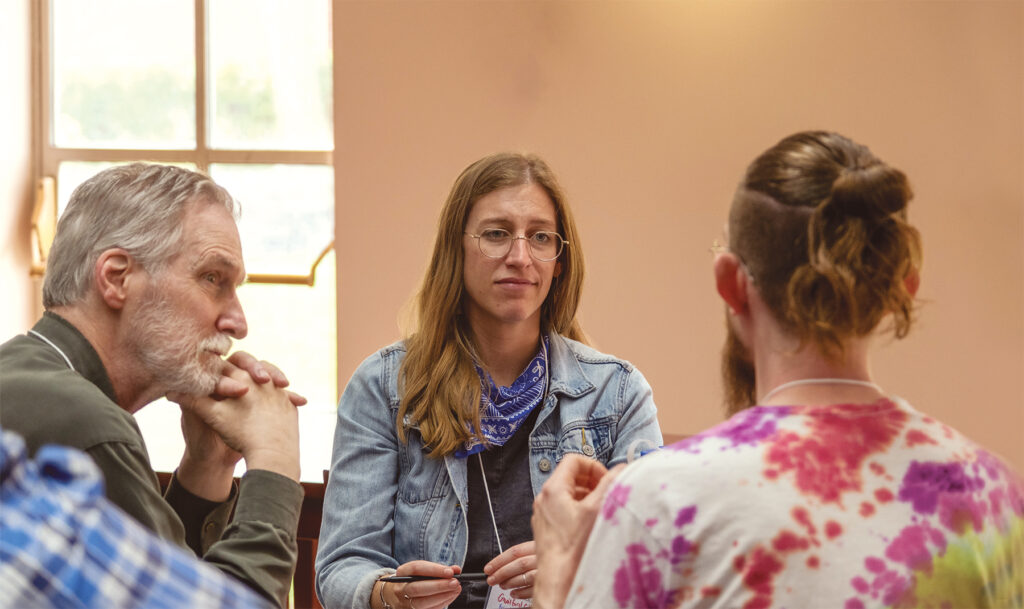
The first one is the fallacy of leaderlessness.
Last year, I was hired as the associate director of a new initiative of Earlham School of Religion in Richmond, Indiana. They were ready to launch after having been awarded a grant from the Lilly Endowment, and having hired a director and associate director. My colleague and I inherited a long name, and it soon became clear that one of our first tasks would be to decide on one that was easier to say and remember. After a period of discussion about our central work and mission, we settled on a new name: the Quaker Leadership Center. In the spirit of plain speech, it’s simple and clear, avoiding the lengthy acronyms to which Quaker organizations are sometimes inclined. When we introduced the name to other Friends, most folks were happy with it. Some, however, were not pleased with the “L” word. They explained, “Quakers don’t have leaders.”
The truth, however, is that we do have leaders, and we should be honest about this. We have positional leaders like superintendents, general secretaries, directors, and clerks. Many Friends also have pastors, elders, and worship leaders. And there are less official leadership roles like weighty Friends, spiritual nurturers, activists, healers, and intercessors. A statement like “we don’t have leaders” doesn’t reflect the reality of the current Quaker landscape or the reality of Quaker history. If it did, we wouldn’t keep talking about individual figures like George Fox, Margaret Fell, Mary Dyer, or Bayard Rustin. For the sake of our integrity, we should stop saying we are leaderless.
I understand, however, that the word “leader” sometimes conjures images that don’t reflect our practice or spiritual aspirations. We think a leader is a charismatic figure who exercises a dominating authority over people. This is not what we need and rarely what we experience from Quaker leaders. While we are not invulnerable to exploitative leadership, most Quaker leaders are servants of their calling and their community or organization. They seek to lead others as they follow the leading of the Spirit.
My colleague Della Stanley-Green uses a working definition of a leader as “anyone who takes responsibility.” That describes many Friends who step into roles to serve their meeting or neighbors. I would add that leaders also “see possibilities.” I like social worker and author Brené Brown’s definition: “A leader is anyone who takes responsibility for finding the potential in people and processes, and has the courage to develop that potential.” We might say that a leader is someone who sees possibilities and takes responsibility to develop those possibilities, under the leadership of the Spirit and with the consent of their community. However we label it, there are formal and informal leadership structures working among us, and we can’t shape them unless we name them.
The solution to the dangers of centralized power is not to deny leadership but to make room for everyone in the community to realize their leadership potential. As Elton Trueblood and others have said, Friends did not so much abolish the clergy as abolish the laity. Parker Palmer wisely reminds us:
Leadership is a concept we often resist. It seems immodest, even self-aggrandizing, to think of ourselves as leaders. But if it is true that we are part of a community, then leadership is everyone’s vocation, and it can be an evasion to insist that it is not. When we live in the close-knit ecosystem called community, everyone follows and everyone leads.
The solution to the dangers of centralized power is not to deny leadership but to make room for everyone in the community to realize their leadership potential.
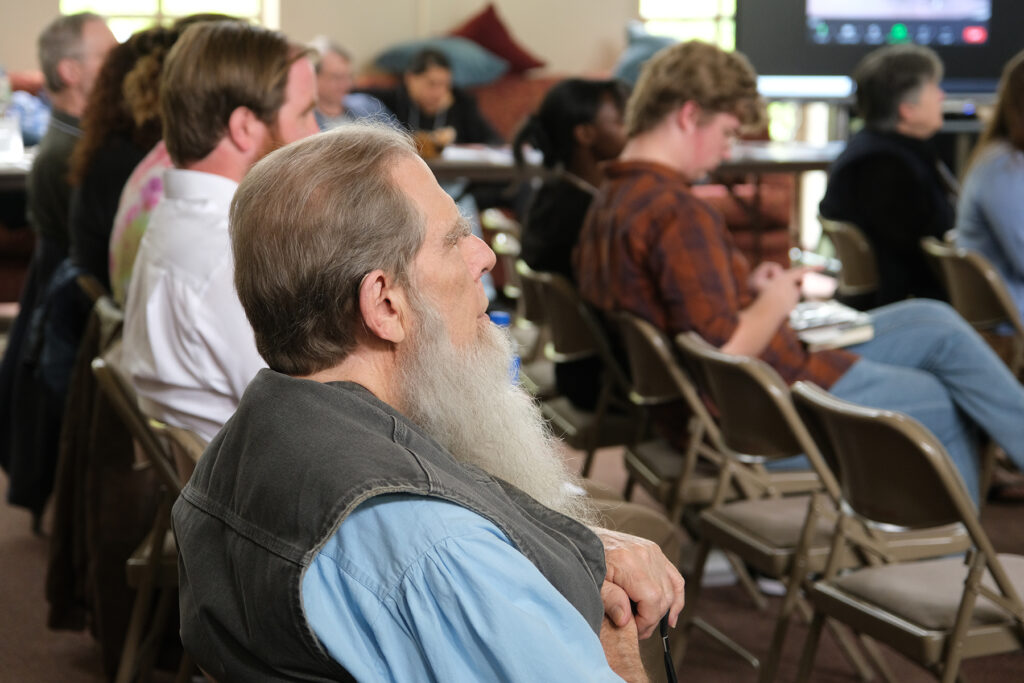
The second fallacy of Quaker leadership is the fallacy of chill.
We are right to be wary of hierarchy and to nurture a “discipleship of equals,” to borrow from scholar Elisabeth S. Fiorenza. But we need to be aware that our meetings, churches, and other organizations abhor a vacuum. When leadership is not exerted, there are people who are perfectly willing to take and use that power. Sadly, these folks tend to be the least healthy individuals and the most likely to use that power for self-serving purposes.
My experience is that Friends sometimes fall for the fallacy of chill, a phrase I learned from organizer Priya Parker in her excellent book The Art of Gathering: How We Meet and Why It Matters, in which she addresses anyone looking to facilitate a meaningful, memorable, and human-centered group experience. She defines “being chill” as the “desire to host while being noninvasive.” But this approach is misguided, she explains:
Many hosts I work with seem to imagine that by refusing to exert any power in their gathering, they create a power-free gathering. What they fail to realize is that this pulling-back, far from purging a gathering of power, creates a vacuum that others can fill. Those others are likely to exercise power in a manner inconsistent with your gathering’s purpose, and exercise it over people who signed up to be at your—the host’s—mercy, but definitely didn’t sign up to be at the mercy of your drunk uncle.
Leaders are like hosts of their organizations. They steward the power of their presence: they take up space and create space for others. Healthy leadership makes room for others, like a host welcoming guests into their home. But hospitality is active, too. It involves taking steps to make the guests feel comfortable, informing them about the bathroom or the menu, and guiding the evening’s festivities. Sometimes this also involves confronting the “drunk uncle” who disrupts the gathering. Occasionally this means asking someone to leave because they are disrespecting the other guests and disregarding the purpose of the event. Parker calls this “generous authority.” She states: “A gathering run on generous authority is run with a strong, confident hand, but it is run selflessly, for the sake of others. Generous authority is imposing in a way that serves your guests.”
When leadership is not exerted, there are people who are perfectly willing to take and use that power. Sadly, these folks tend to be the least healthy individuals and the most likely to use that power for self-serving purposes.
Healthy Quaker leadership is generous and compassionate. But it’s not “chill.” We must be willing to sometimes “be imposing in a way that serves [our] guests,” as Parker describes it, even if it doesn’t look “nice” or “Quakerly.” We have to differentiate between pacifism and passive-ism, between peacemaking and peacekeeping. You probably know this from experience; think about the following scenarios, some of which you may have encountered:
- A meeting for clearness devolves into advice-giving and storytelling with few questions and little silence because the clerk of the committee does not actively clerk.
- An individual gives political speeches and airs personal grievances every week during open worship, but no eldering takes place.
- A church steadily declines and can’t keep pastoral leadership because no one will do anything that contradicts the wishes of a core family.
- A promising young leader withers in potential or leaves the meeting because there are no structures in place to affirm their gifts.
- LGBTQ visitors never return to the meeting because of the insensitive comments made by a homophobic Friend who is not confronted because “he has a good heart” and is a major contributor.
- An organization with great potential for social change is stuck because they have disagreements about issues that are never engaged, keeping them in a state of what M. Scott Peck called “pseudo-community.”
In all of these cases, an exercise of “generous authority” could be used to actively welcome the excluded and release new energies for ministry. The solution, then, as Friend MaryKate Morse puts it, “does not come through the divestment of power but through its use for redemptive purposes.” Ultimately, our exercise of leadership enables us to use power to empower others. We learn to simultaneously “grow in authority” and “relinquish control,” as ministry consultant Celia Allison Hahn put it.
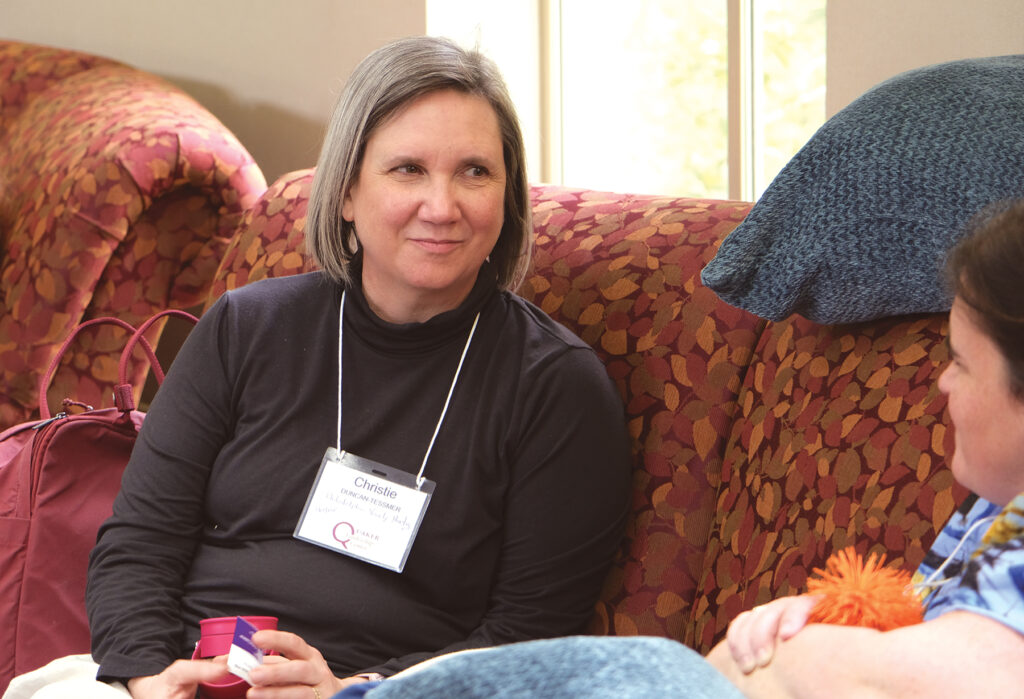
The third fallacy is the fallacy of empathy.
This fallacy is related to the fallacy of chill but perhaps even more challenging. I learned the idea from the late rabbi and therapist Edwin H. Friedman in his book A Failure of Nerve. Drawing on family systems theory, he noticed how appeals to values like “sensitivity, empathy, consensus, trust, confidentiality, and togetherness” are used as tools for control, and those who inject them into a discussion most quickly have “perverted these humanitarian words into power tools to get others to adapt to them.” Empathy, for example, is often a “disguise for anxiety”—an attempt to resist change, maintain power, or force the group to adopt their opinion. I admit that this critique troubled me when I first read it. As a Christian, I am called to “weep with those who weep” and prioritize the most vulnerable. As a Quaker, I am called to look for that of God in every person. These are deeply empathic moves. Besides, don’t we need more empathy not less?
Yes, we need more empathy. We also need better empathy. True empathy opens us to the sufferings of others. It makes us tender to divine leadings. It prepares us to act as advocates and stand in solidarity. But being an empathic leader doesn’t mean we stand idly by in the face of power grabs, spiritually garbed dithering, and rhetorical violence. It doesn’t mean we allow a meeting’s mission to be sabotaged by unhealthy or immature people, no matter how much we care about them personally.
But being an empathic leader doesn’t mean we stand idly by in the face of power grabs, spiritually garbed dithering, and rhetorical violence. It doesn’t mean we allow a meeting’s mission to be sabotaged by unhealthy or immature people, no matter how much we care about them personally.
The fallacy that Friedman was addressing is not that we should disregard the needs or views of others; that’s called narcissism. We should always be open to how the Spirit may be speaking through an individual or “minority opinion.” Instead, Friedman is addressing the pervasive belief among goodhearted folks that we can “empathy” others into healing, that we can “love” someone out of addiction, and that we can be so nice to a bully that they are transformed into a friend. Recently, some Friends have brought up the tragic example of Quaker Henry Cadbury who counseled Jewish leaders to avoid resisting the rising Nazi regime and appeal to the “German sense of justice and the German national conscience.”
While Cadbury’s naïve approach to Nazism may be an extreme example of the fallacy of empathy, we witness it in smaller ways inside Quaker meetings and organizations. The Quaker decision-making process is a sacred gift but one that is vulnerable to manipulation. Individuals weaponize consensus to obstruct changes they don’t like, confusing preference with conscience. They are given a voice by the process, so they use it: whether it’s helpful or not, whether it’s Spirit-led or not. We are annoyed by these Friends, but we hope that, with enough silence and niceness, they will change. After all, we believe in the transformational power of love. Indeed we do, but love is not opposed to truth-telling. Leadership is not the opposite of love. And, as Friedman reminded us, it’s often by calling for responsibility (rather than endless empathy) that people truly heal and grow.
We should beware of two common types of sabotage that appeal to empathy. The first comes from the “savior,” who believes in salvation by obstruction. They believe they are saving their church or meeting by conserving the pure and original faith, whether it’s Quaker practice, Friends testimonies, or the authority of Scripture. The second kind comes from the “prophet,” who believes in salvation by disruption. They believe they are spokespersons for the oppressed, and if a meeting cares about injustice at all, they will do exactly as the prophet demands. We would do well to remember Thomas Merton’s wisdom: “It may be true that every prophet is a pain in the neck, but it is not true that every pain in the neck is a prophet. There is no more firmly entrenched expression of the false self than the self-proclaimed prophet.”
The irony is that we need conservers and prophets in our communities. We need to listen to one another with empathy. And sometimes we need to chill out and let the Spirit be the lone leader. But like all good things, these can be distorted. When we fall for these fallacies, we miss out on the prophetic possibilities of Quaker leadership.
Thomas Kelly wrote: “No religious dictator will save the world; no giant figure of heroic size will stalk across the stage of history today, as a new Messiah. But in simple, humble, imperfect people like you and me wells up the springs of hope.” I think he’s right.
We don’t need more political or religious “strongman leaders”; they will not save us. Neither do we need to obfuscate our responsibilities, neglect our possibilities, or hide our light under a bushel. We need people of “quiet courage,” as church consultant Gil Rendle puts it. We need those “imperfect people like you and me” to rise up—and be raised up—as from the Spirit’s springs of hope.


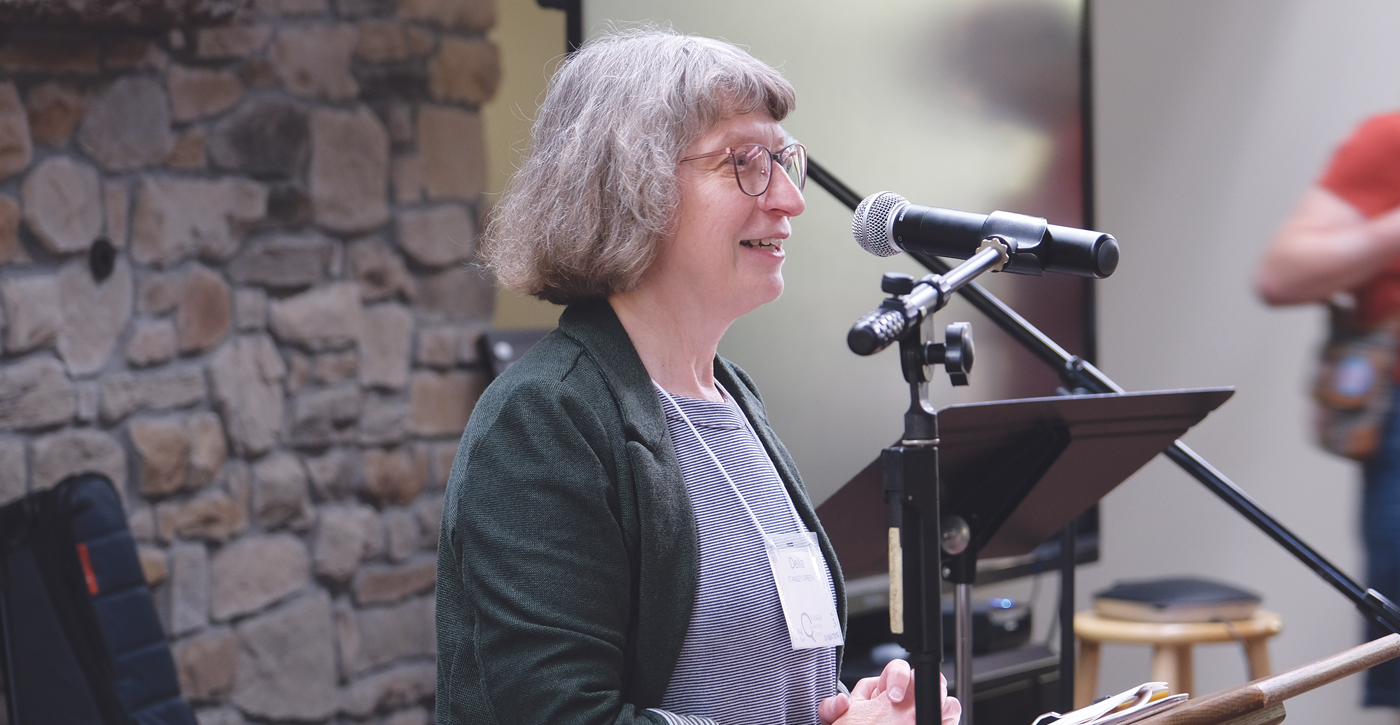



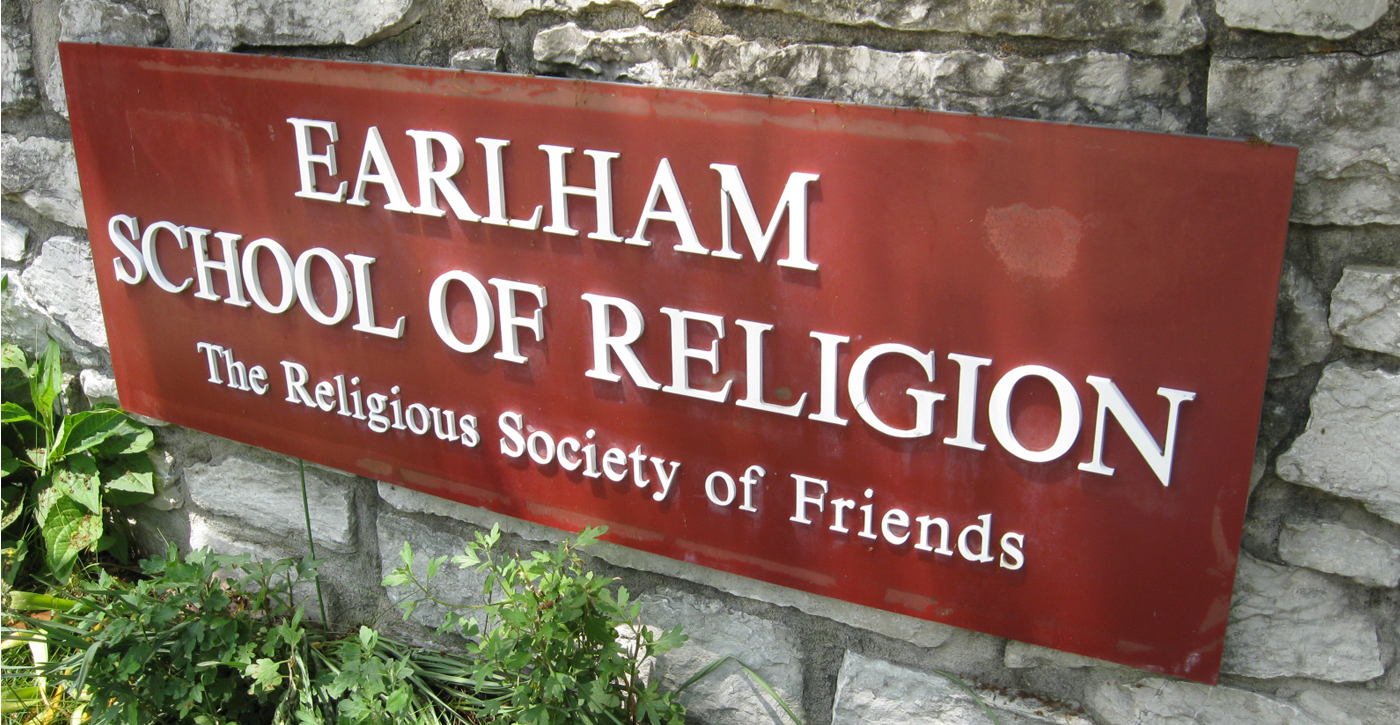
Homosexuality is a major issue for many Christians. Many believe that it is a choice not intended by God and does not lead to a productive outlook on life and its necessities. I grew up in Philladelphia suburbs (Abington). I was raised in The Reformed Episcopal Church in Oreland, Pa. Do Quakers see homosexuality as a Choice or as contrary to God’s intention?
Yes, indeed we do. Speaking solely for myself, as a systems designer, I see that attempting to continue the species with something other than male-female pairs is a non-starter. I get this not from looking at the Bible, but by looking at the “blueprints.” I also look at those in my meeting who have chosen to create families with two mothers, and see that they can oftentimes do better than the “average” hetero pair of parents in, not the starting phase, but the raising phase of the new generation. Finally turning to the Bible, I look at the 28th verse of the very beginning chapter: “And God blessed them, and God said unto them, Be fruitful, and multiply, and replenish the earth, and subdue it …” to a male-female pair. What I see around me is a population which has surpassed eight billion souls, and a planet Earth which is not merely subdued, but critically injured, and I (again, speaking solely from my own heart) cry out “its ‘plenished already, dear God can we not lighten up on this damnation-bound male-female-pairs-only rule?” Thus I have three distinct non-parallel views on the subject all by myself. I deeply thank you, Mr Keenan, for a quite Quakerly query that calls forth a stern examination of my own thinking.
Jesus did not multiply himself, as loving God and neighbor were far more important priorities. Perhaps God intends to use committed homosexual parents to reduce the harm of abortion by providing more adoptive and foster parents to improve options for all? Meanwhile, our technology may allow merging any two (or more) people’s DNA and growing a designer baby within a decade or two.
This is a great article–informative and helpful. I recommend its wise words for every Meeting in Quakerdom.
Excellent article and spot on for what ails many Meetings, my own especially! As we transition from pandemic isolation to community worship and practice, it is critical that we re-examine our “established” responses to changing meeting membership and shifting cultural influences. Such “policies or practices” can be manipulated by these fallacies to create stasis and permanent advocacy without action both inside our Meeting and in the larger community beyond our doors.
As a human being I see homosexuality and diversity as part of life forms on earth – for what good or intent I cannot tell, but I can recognize love and care, when I see it and can find no harm in people loving each other in mutual consent. As a Quaker I see no reason to deviate from this view. I did not create earth, so who am I to judge? Be happy in your own way by all means and think of yourself as part of creation and meant to be.
Hi, am from Northern part of Tanzania in Africa, am very much excited with your progress, should I have regular communication with you, as your as one family of Friends Church.
Am very much excited with.your programs